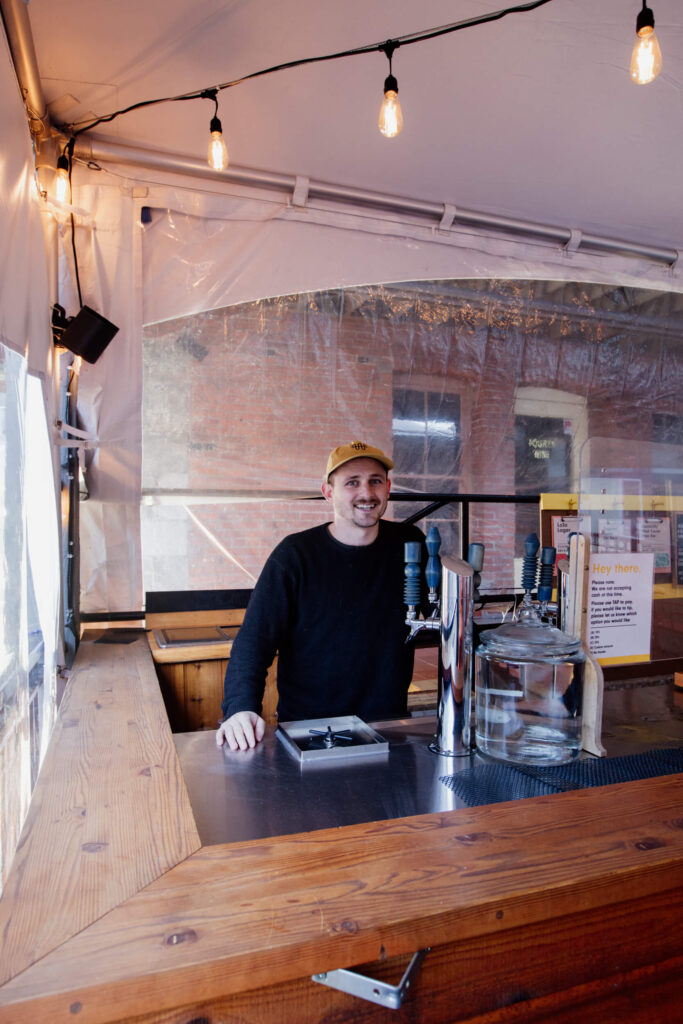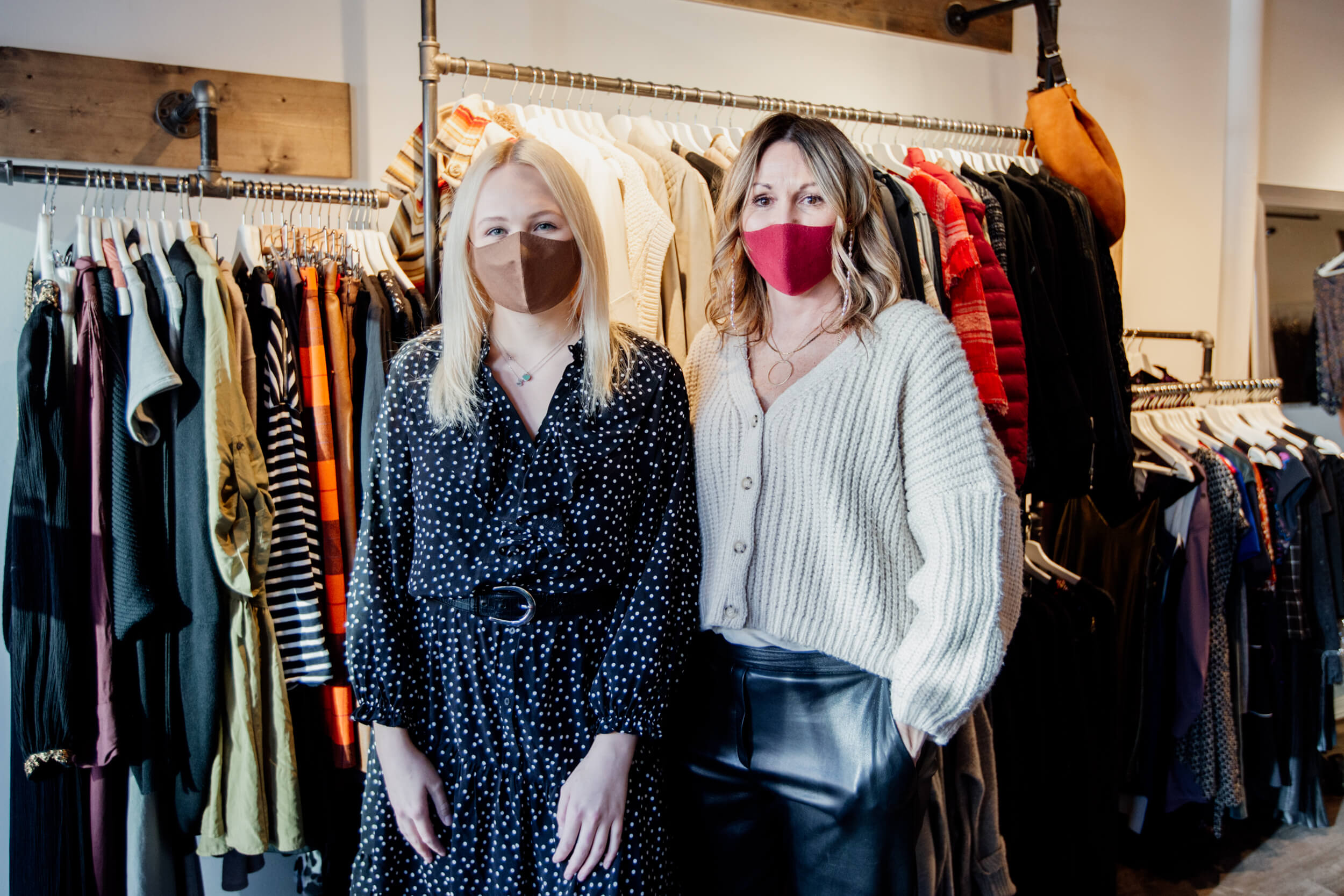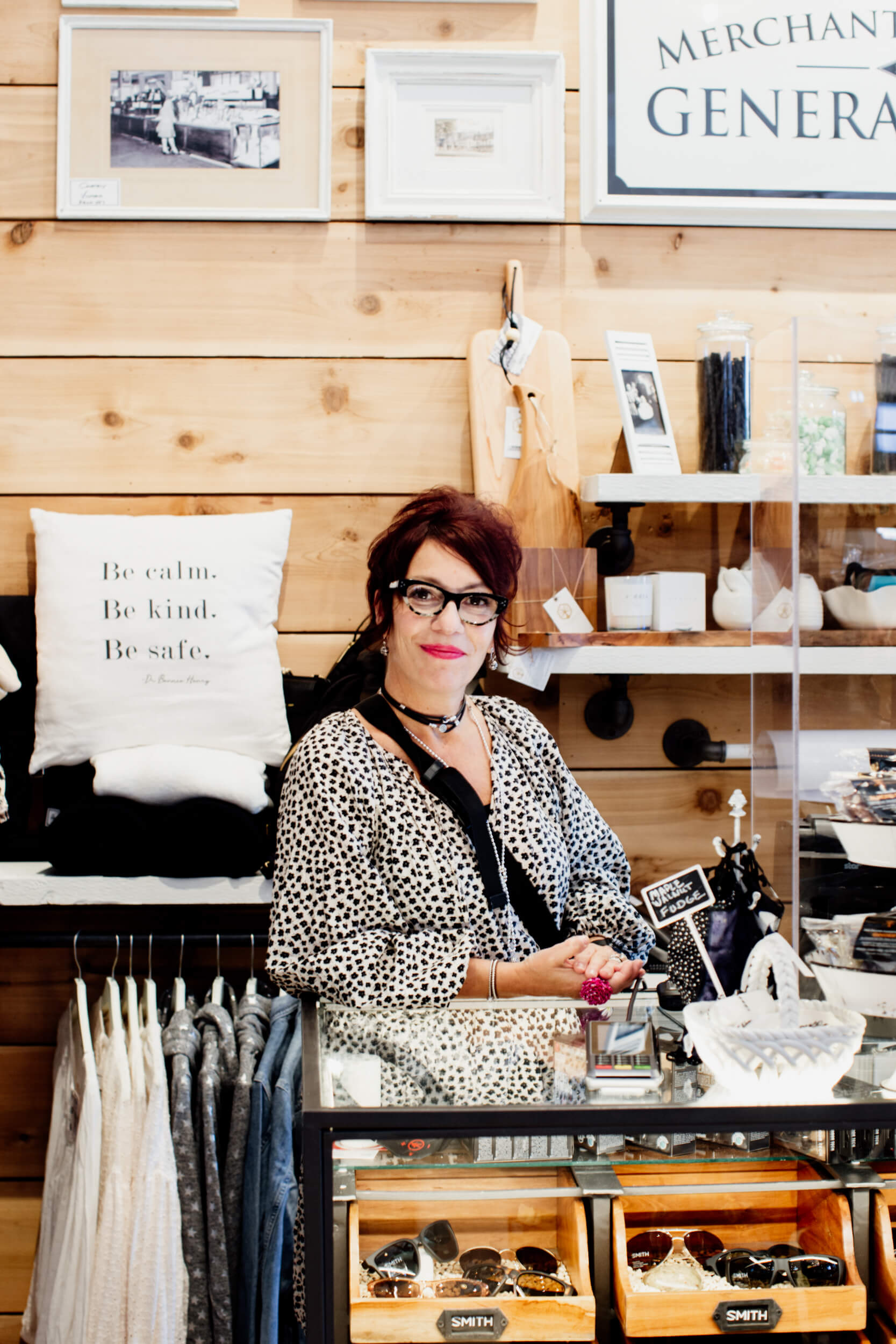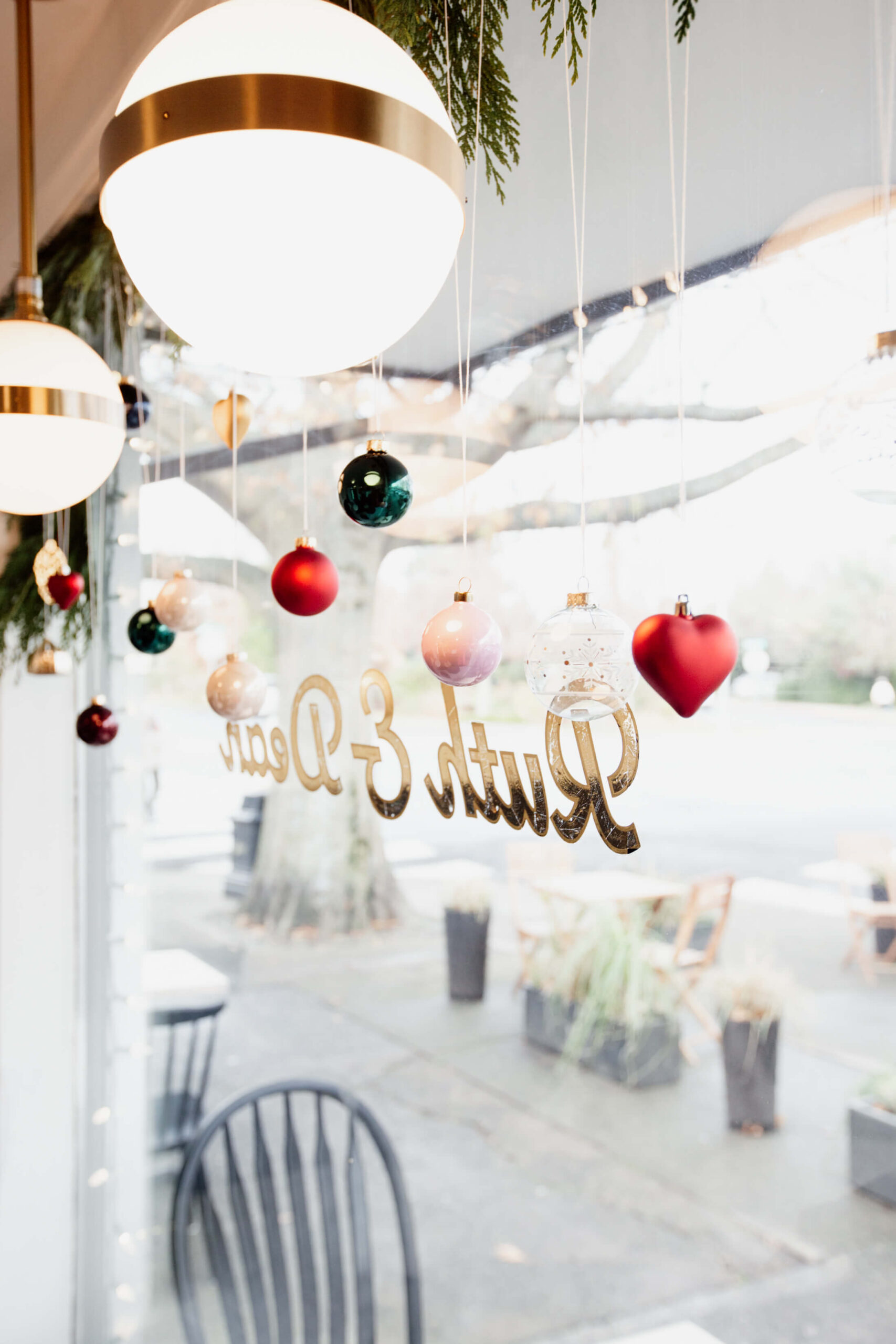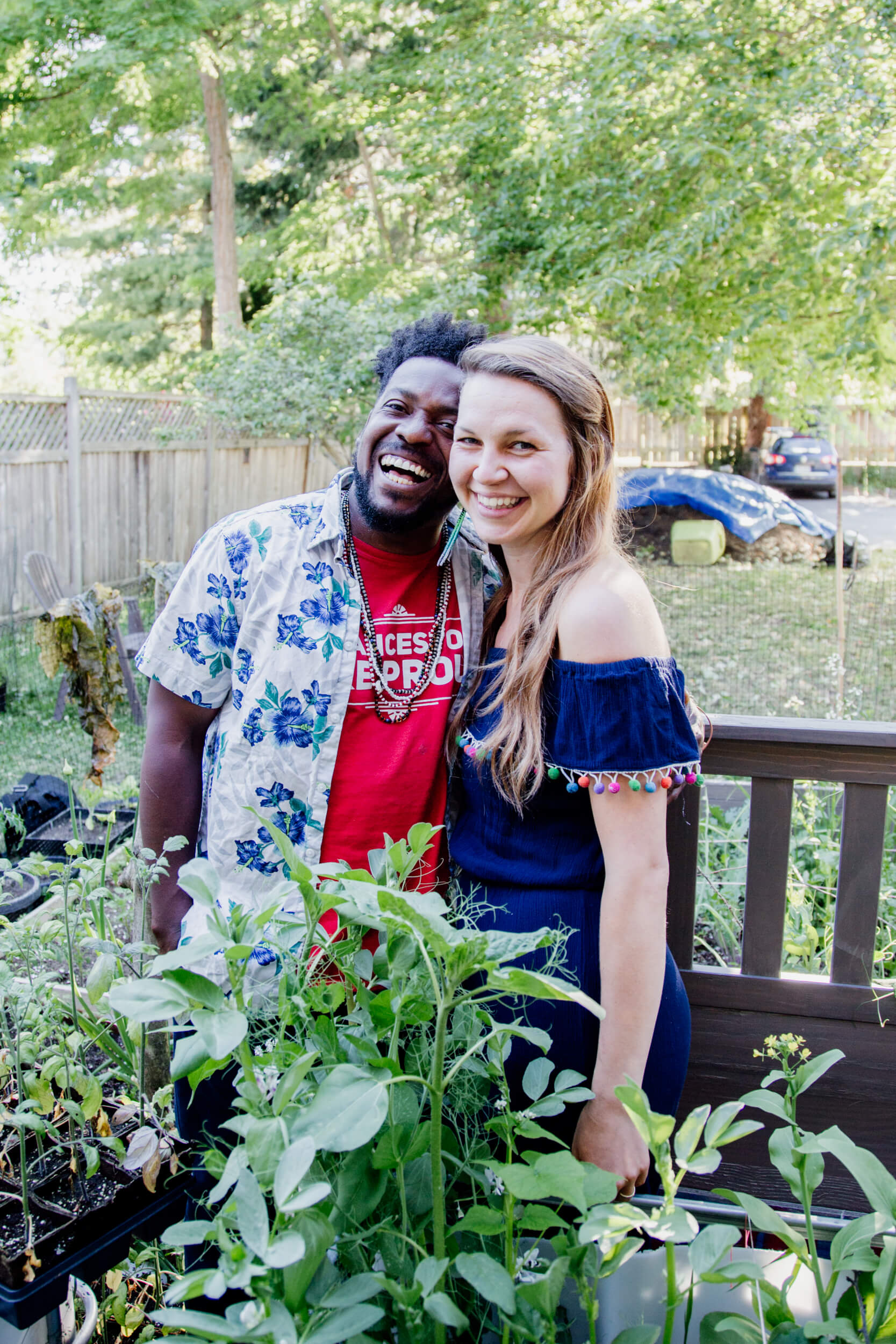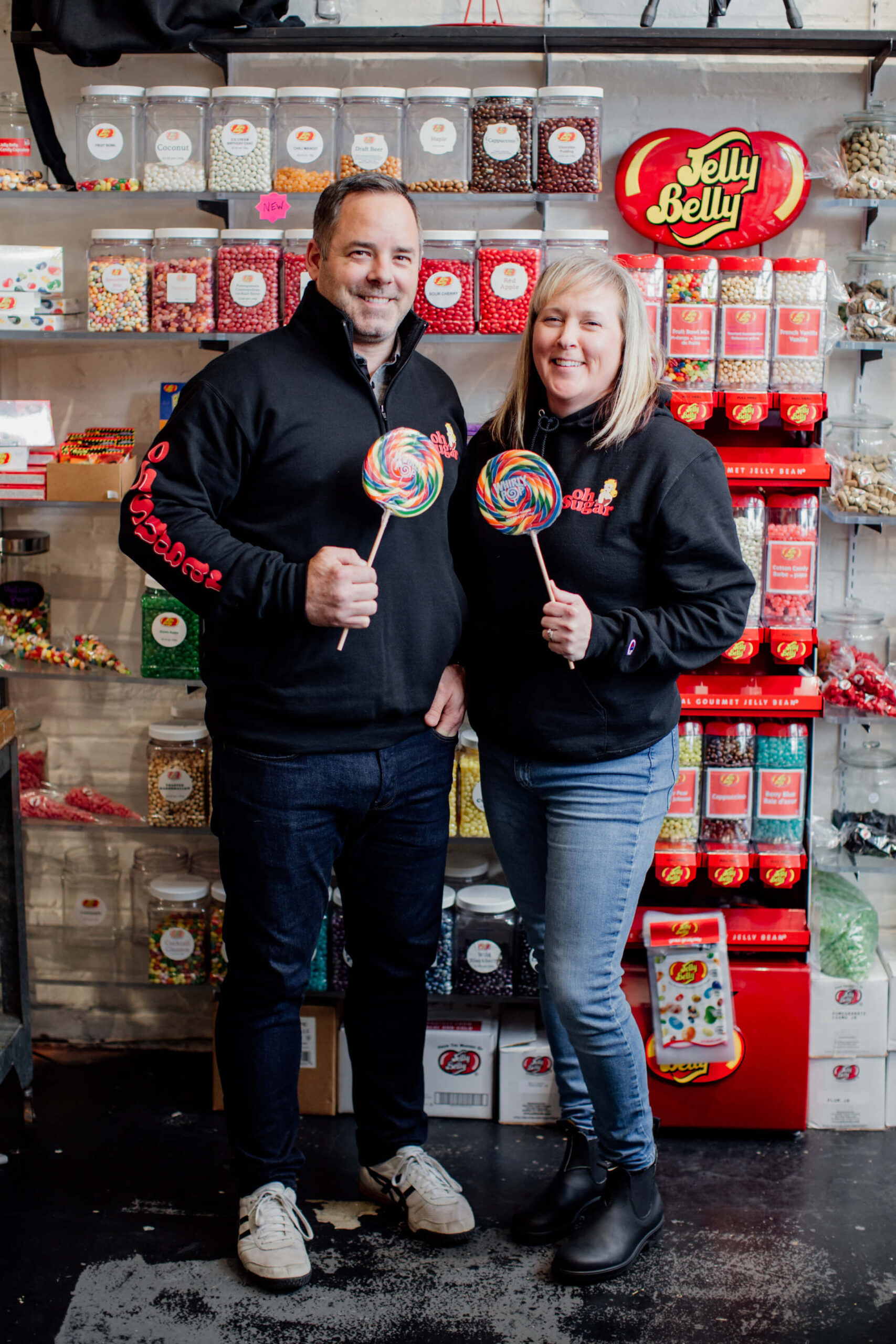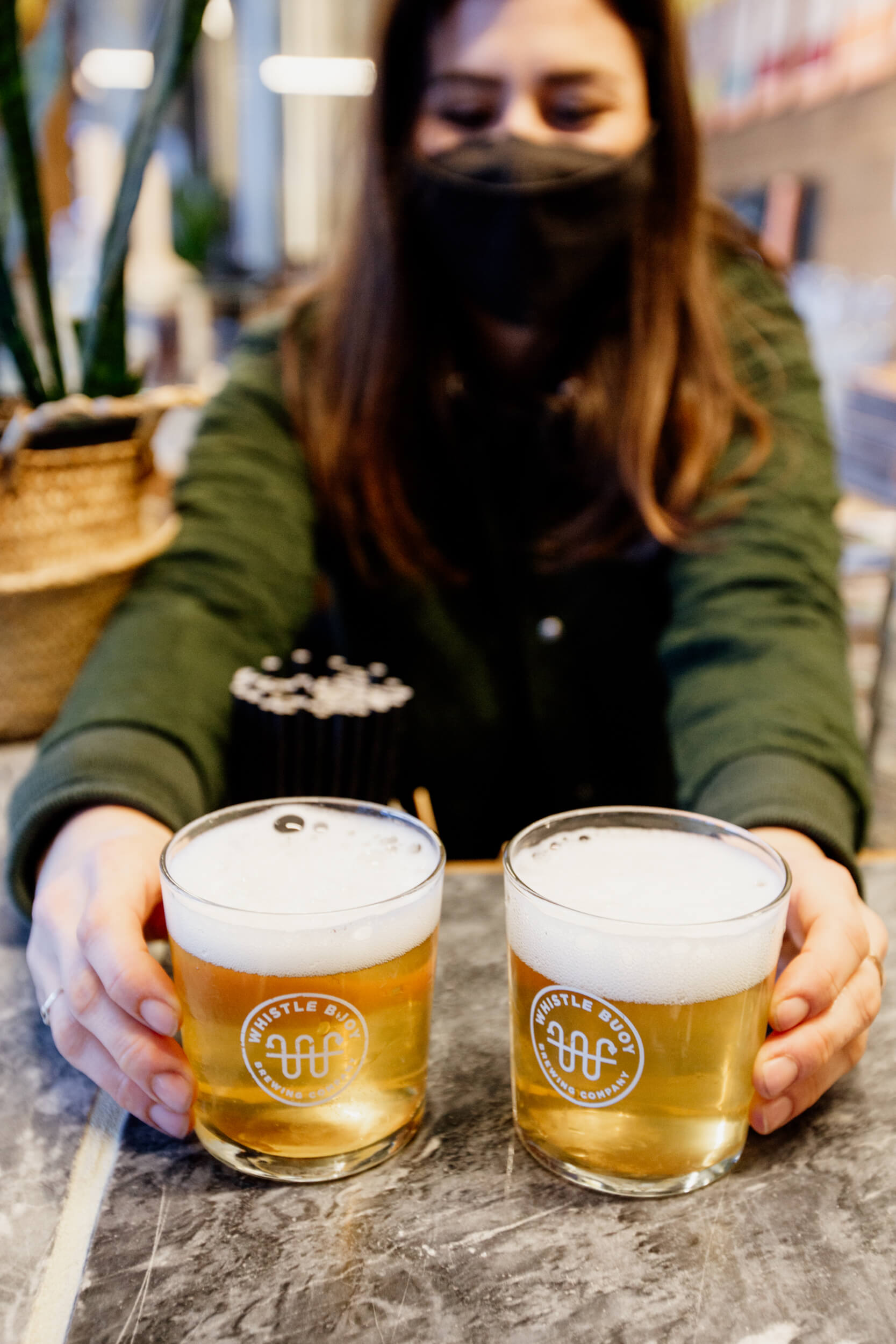
In Conversation with Isaiah // Whistle Buoy Brewing
Name: Isaiah Archer
Shop: Whistle Buoy Brewing Company
Address: 63-560 Johnson St. (Market Square courtyard), Victoria, BC
Instagram: @whistlebuoybrewing
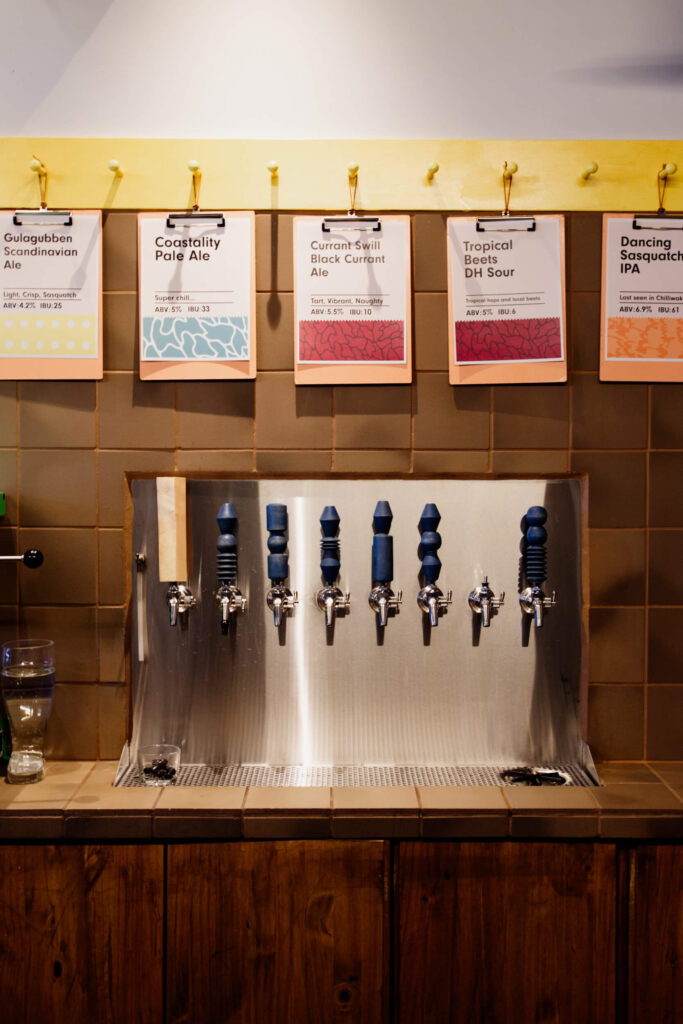
What is Whistle Buoy Brewing?
Whistle Buoy Brewing Company is a community taproom brewery in Market Square.
If you had to describe Whistle Buoy Brewing to someone who hasn’t seen it, how would you describe it?
We have a small brewery with a tasting room and patio right beside it, so you can see where the beer is made while you’re drinking it. We are in a busy downtown square built over 100 years ago, with a nice big dog-friendly patio in the courtyard. We make small batch experimental beers using high-quality local ingredients and serve them to the local community. That’s the core of what we do.
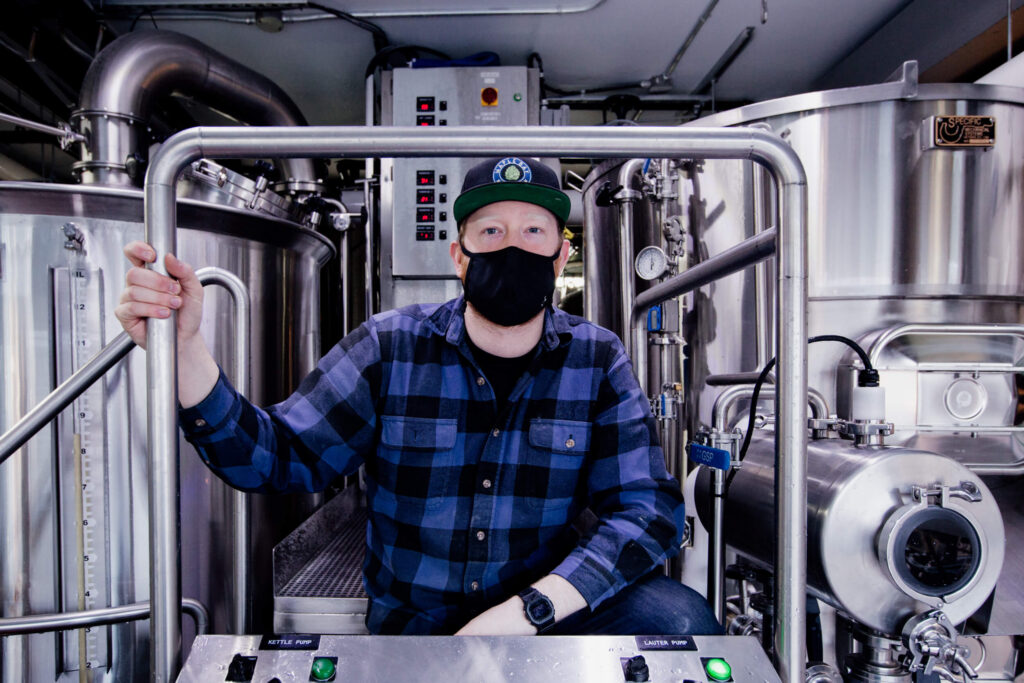
There are 5 partners involved in the business. We loved hearing about your diverse backgrounds and strengths. How did you all meet? What made you decide to open a brewery?
Most of us have connections dating back 10 years while living in Banff. I moved to Vancouver Island after high school and have been here ever since. I ended up working for Phillips for a few years after university and then pursued further education in the sustainability field. Iwan also moved here for university, and shortly after started on an entrepreneurial path, getting involved in several start-ups and working in commercial real estate development. Matt, the brewer, is the only true Victoria local. He grew up here and got into the craft beer industry about five years ago, completing the brewmaster program at the World Brewing Academy before working as a brewer at Spinnaker’s. The three of us were in the same social circle and began going on fishing trips together when we discovered our shared love for the outdoors. There was always plenty of craft beer in the fridge on these trips, and long conversations about the beer industry led us to realize that we had the right people in the room to start a new beer concept of our own.
We began writing a business plan and realized we were lacking service industry knowledge and also the ability to raise enough money to start the business. This is when we called our friends Colin and Nina (who I also met in Banff back in high school). They were similarly looking for their next opportunity to start a new career path and to sink their teeth into something to call their own. With them on board, we had assembled a strong team with diverse backgrounds and experiences that helped share the load of this start-up, and it got us all in the game as business owners.
For those of us that don’t know a lot about the craft industry, would you mind telling us the differences between microbreweries, brewpubs, taproom breweries, regional breweries, etc? How did you decide on the direction you wanted to go?
Craft brewing at its core refers to breweries that avoid the use of additives or stabilizers to prolong the natural shelf life of beer. There are also aspects of the craft definition about maintaining a certain size and independence. Other than those things, craft breweries can be so different from one another. Our model is called a taproom brewery. So we are a craft brewery (using only natural ingredients) that is independently owned (no corporate oversight of affiliation) that serves our beer in full-sized glasses in the same building that we make it in. We aren’t a brewpub because we do not have a commercial kitchen, and we aren’t a regional brewery because we do not distribute our products beyond our city. So … we are a community taproom brewery.
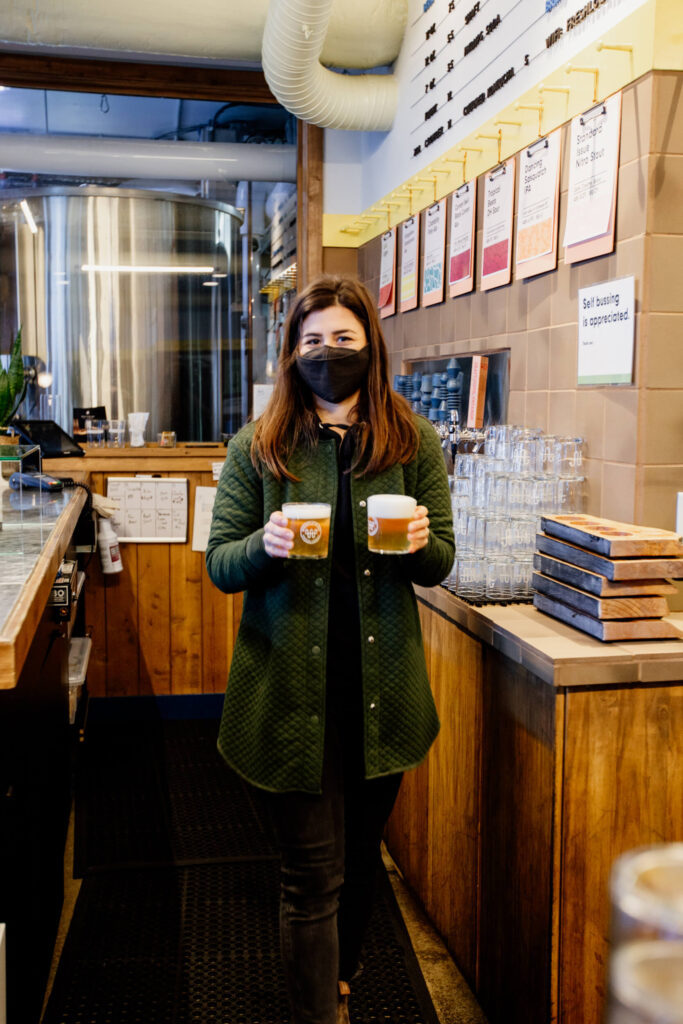
You are passionate about sustainability and so are we. Can you tell us how you have incorporated sustainable practices into your business? What efforts do you make to be environmentally friendly?
The beer industry is very resource intensive by nature. There are always going to be a lot of raw ingredients going into making beer on a commercial scale. What we are committed to doing is ensuring those raw ingredients are grown close to home and supporting independent farmers in our community. Luckily for us, using local ingredients in this part of the world also means using some of the highest-quality ingredients available anywhere. There are some nice reciprocal opportunities as well, like giving all of our spent grain to farmers for animal feed and to bakers to make bread with. We’ve also invested in a condenser stack, which is a piece of equipment that captures heat energy from the boil, which is then used to heat water for cleaning in the brewery. Another exciting new project for us is the purchase of flow meters for all water being used in the brewery. We are currently doing a baseline assessment of our normal water use, so we can set realistic targets and begin methodically reducing our water use.
The biggest environmental impact many breweries have is tied to their distribution. If you think about the shipping and logistics that a brewery with regional, national, or international distribution has, the environmental footprint of that operation can be pretty huge. So as a taproom brewery, we can avoid that altogether. As we continue to learn from industry peers and track our impact, we are excited to reduce our footprint to the lowest amount possible and share best practices with anyone who will listen!
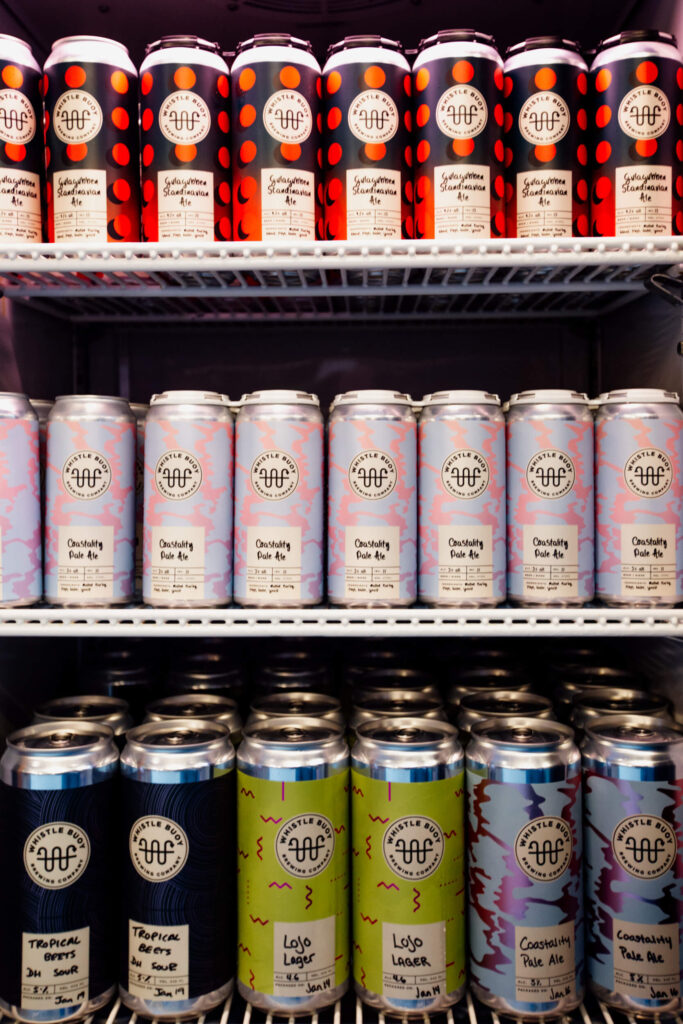
Can you tell us about your brewing practices? How is your beer connected to the local area?
So far we have brewed close to 150 batches. In that time, we have used grain grown in the Fraser Valley, hops grown in Maple Bay, currants grown in Sidney, blackberries, blueberries, strawberries, raspberries, kiwis and beets grown in Saanich, grapes from Salt Spring, kelp harvested in Sooke, cranberries from Comox, and plums from Victoria. We have collaborated with 6 independent local coffee roasters, a local chocolate maker, a tea producer, a bakery, and several restaurants. We have also made beers with 4 different Island breweries. That’s all to say, we love our community and we buy our ingredients very close to home whenever possible.
We can’t get enough of your beer! The Lojo Lager and Desire Water-Rosé Tea Ale are our favourites. What would you say is unique about your beer? How do you separate yourself from other crafters?
The main difference between us and a lot of other craft breweries is experimentation. We try a lot of new things and are usually releasing a new recipe every week. This takes a lot of planning and effort, but it’s what makes our work a really fun challenge. The fact that we aren’t distributing to liquor stores makes it a lot easier to try one-offs and just see what happens. We also do our best to avoid rushing our beers, which usually results in a fairly balanced end product. At the end of the day, there are a ton of great breweries in BC and around the world that have talented brewers using quality ingredients, so we just try to stick to what’s true to us and allow ourselves to be creative and try things.
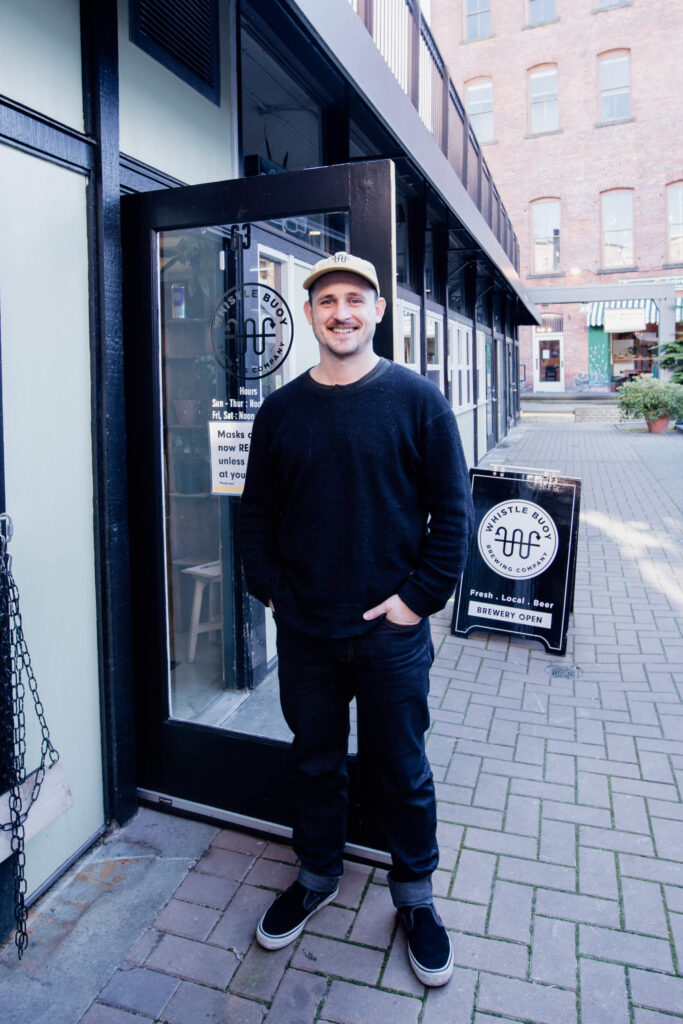
Running a business can be challenging at times. How do you evaluate what is working and what isn’t? What guides you in your choices?
Firstly it’s being very clear on what our values are, and if something isn’t aligned with our values, it’s got to go. Customer feedback is huge. Social media and online reviews tend to provide a lot of feedback so we make sure to pay close attention to what folks are saying about our beer or their experiences in our space. Our staff are also really great about bringing new ideas into the fold or calling things out when they need to be adjusted or improved. There’s also the numbers. We do our best to be very tuned into what the data is telling us about sellthrough and profitability. If something isn’t working, we are usually quick to adjust, try something different, and continue learning.
What are some of the hardest lessons you’ve had with your business? How have you overcome them?
The big thing we’re all going through right now is the pandemic. The majority of our business’ lifespan has been in the context of COVID-19, and we were quickly forced to transition away from the model that our whole business was built on, which was having people enjoy their beer in our space. So last March when we had to close our doors and lay off all of our employees, it was “do or die” time. We learned that it is really crucial to be thinking about what we CAN do and using the restrictions as creative constraints to go after new opportunities. It was a hard thing to remain optimistic and continue working hard, but like everyone else, we didn’t have much choice. We also realized how fortunate it was for us to have a large team of owners that were willing and able to put in the work to keep things moving when we couldn’t afford to keep our staff.
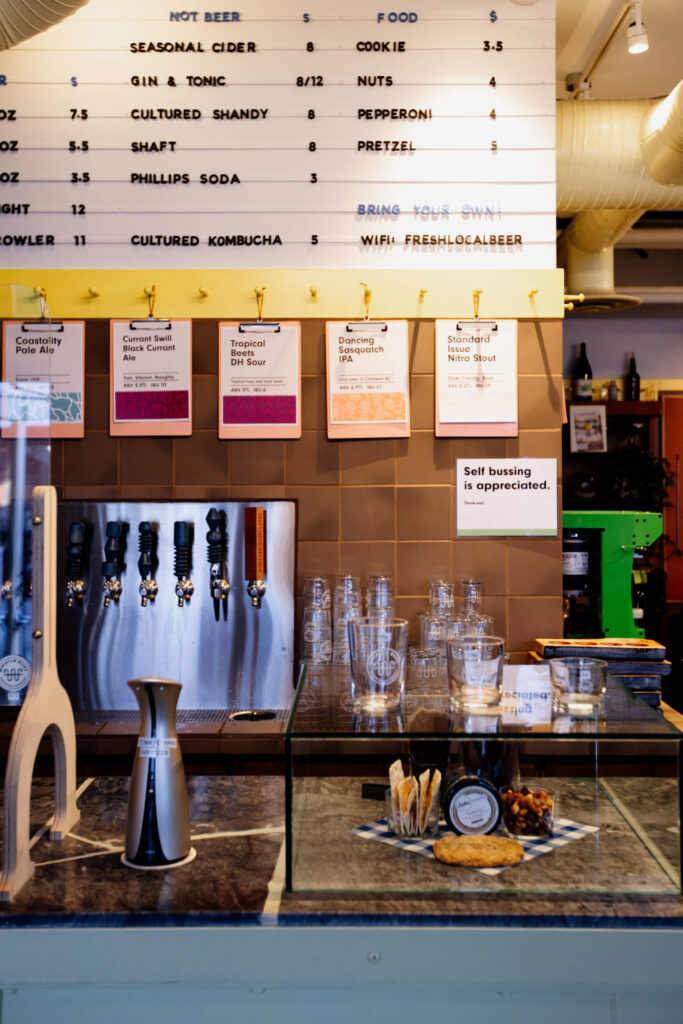
What advice would you give to someone wanting to open up a brewery?
You have to really give a shit about the quality of the beer. Anything below average just doesn’t cut it in this market where there is such a high level of competition and consumers that really know their stuff. The other thing I would say is to think about how modern design and technology play into your plan, because our world is shifting rapidly and we have to be ready to shift our operations and adapt quickly.
Have you made any hard decisions to get you through the ongoing challenges of COVID?
The hardest thing we had to do is let go of our staff. This was a really sad day for us, but we were luckily able to hire everyone back!
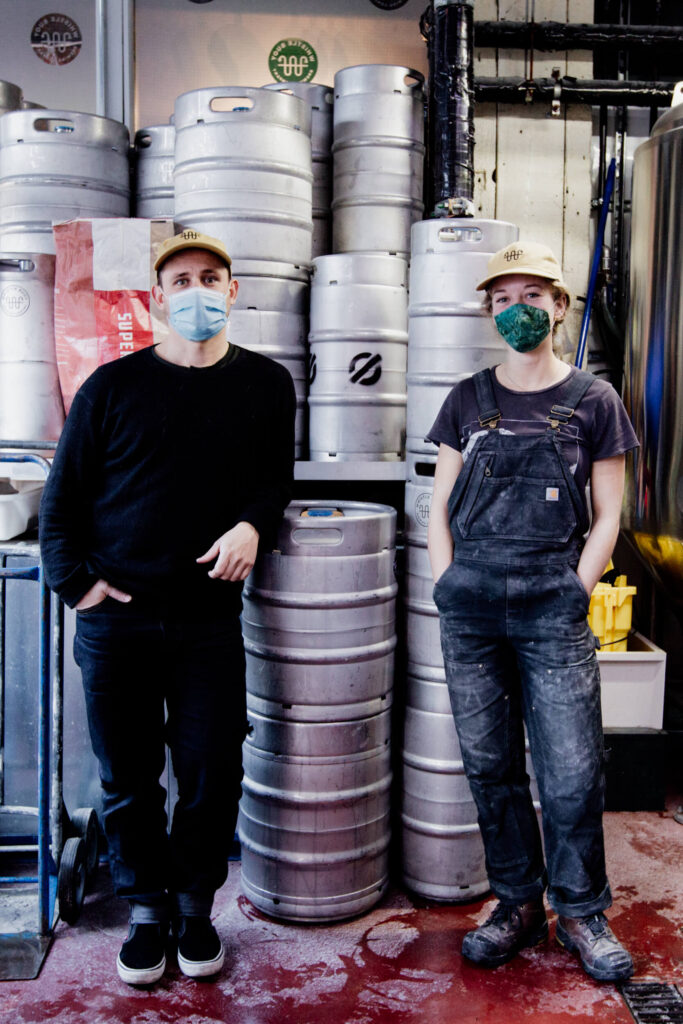
As you look back on this chapter in our lives, what do you hope to gain in terms of personal and/or business growth?
I think just to remember that we are resilient, and that we have the tools to overcome big challenges. We just need to believe in the vision, take care of ourselves and each other, and show up every day ready to make things happen and be flexible.
Inspiration is all around us. Can you tell us who or what inspires you all?
Wow, the independent business community in this city is truly amazing. We see so many shop owners showing up every day, being kind and positive and just pushing on. It’s really inspiring to be in our lower Johnson neighbourhood and observing the perseverance and commitment to quality and high standards despite the obvious challenges people are going through. Also the natural environment on the island is a constant source of inspiration. It’s just so epic here.
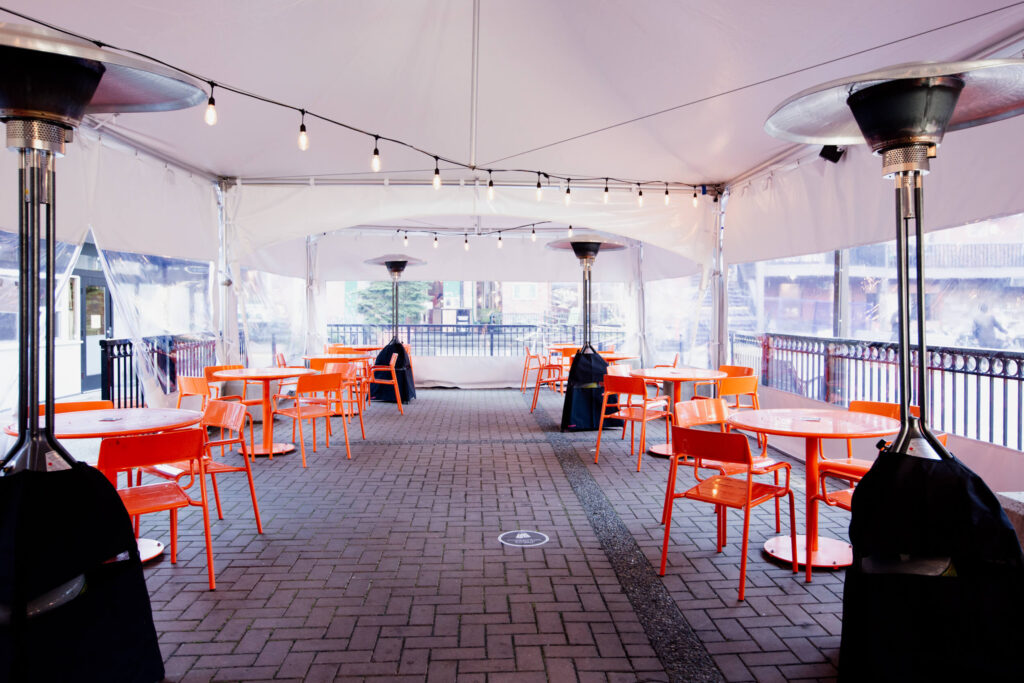
What’s next for Whistle Buoy Brewing? Anything you would like to share?
We are currently expanding into the vacant space next door, which is pretty exciting. That will provide a nice new offering for this summer. Stay tuned on that!
Final thoughts?
Thanks so much for the opportunity to chat with you. It’s a really important thing to reflect on the past year and digest the lessons so we can keep growing. We’d also like to remind people that our heated dog-friendly patio is open everyday and we offer local delivery 5 days a week!
